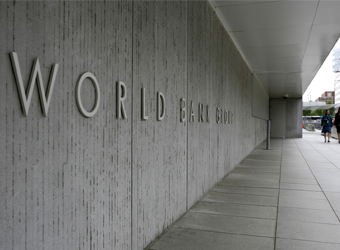“The budget deficit is forecast to decrease to 8.8 percent of GDP within the financial year 2017/2018, supported by energy subsidies reform and increase in tax revenues,” the bank said in its report titled “Refugee Crisis in MENA: Meeting the Development Challenge.”
According to President Abdel Fattah al-Sisi in September, Egypt’s budget deficit stood at 9.5 percent during the fourth quarter of the 2016-2017 fiscal year, which ended in June.
The bank said the country’s economy, fueled by “resilient private consumption,” is projected to grow by 4.5 percent in the coming fiscal year.
The financial institution said however that high inflation remains a challenge in the near term.
Annual urban consumer price inflation stood at 31.6 percent in September. Core inflation, which does not include items succeptible to volatile price changes (such as food), was recorded at 33.26 percent.
The total current account deficit is expected to narrow to 4.6 percent of GDP in financial year 2017/2018, the report also stated.
Recent policies could also help alleviate poverty rates, which may drop in part “through the strengthened social protection measures embedded in the approved budget for financial year 2017/2018, including the increased allocations for food smartcards and for cash transfer programs.”
Egypt introduced a series of major economic reforms in order to close the gaping deficit in recent years, including cutting of fuel subsidies, introducing a new value-added tax (VAT), and floating the national currency last November to attract foreign inflows.


